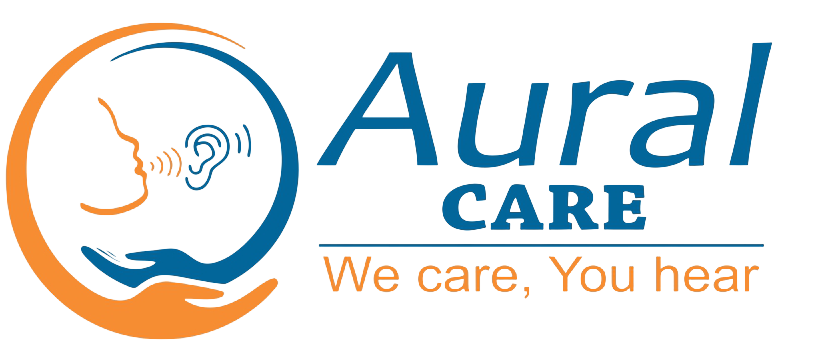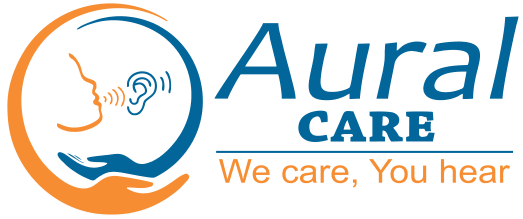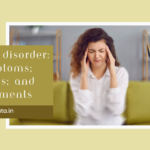Balance Disorder: Symptoms, Causes, and Treatments
A frequent ailment called Balance Disorder impairs a person’s capacity for stability and balance. It may cause symptoms including dizziness, vertigo, and unsteadiness, which can have a substantial negative influence on day-to-day activities. All ages can be affected by balance abnormalities, which can have a variety of reasons, including inner ear troubles and neurological conditions. Depending on the underlying reason, treatment options for Balance Disorder might range from medication to physical therapy. To better assist you comprehend and cure this disease, we will go into further detail in this article on the signs, causes, and therapies of balance disorders.
What is a balance disorder?
Feeling shaky or dizzy is a symptom of a Balance Disorder. You could experience movement, spinning, or hovering whether you’re standing, sitting, or lying down. You can suddenly feel as though you are toppling over while walking.
What signs indicate a balance disorder?
If you have a Balance Disorder, your symptoms might include:
- Dizziness or vertigo (a spinning sensation)
- Falling or feeling as if you are going to fall
- staggers when you try to walk.
- Lightheadedness, faintness, or a floating sensation
- Blurred vision.
- confusion or disorientation.
- Sense of motion or spinning (vertigo)
- feeling of faintness or lightheadedness (presyncope)
- Loss of balance or unsteadiness
- Falling or feeling like you might fall
- Feeling a floating sensation or dizziness
- Vision changes, such as blurriness,
- Confusion
- feeling as if you are floating or as if the world is spinning Disorientation
- Falling or stumbling
Less common symptoms include:
- Nausea
- Diarrhoea
- Vomiting
- Anxiety
- Fear
- Changes in your heart’s rhythm
Other signs and symptoms might be vomiting and diarrhoea, changes in blood pressure and heart rate, as well as dread, worry, or panic. Symptoms might cause weariness and depression and may come and go over brief intervals of time or linger for a long time.
What causes balance disorders?
Medication side effects, ear infections, head trauma, and other conditions that impact the inner ear or brain are all potential causes of balance issues. When you get up too rapidly, low blood pressure might cause dizziness. Balance Disorder can also result from issues with the skeletal or visual systems, such as arthritis or an imbalance in the eye muscles. As you age, you’re more likely to experience balance issues.
Unfortunately, a lot of balance issues develop unexpectedly and without a clear explanation.
issues with the inner ear, such as inadequate ear circulation
Your semicircular canals contain calcium detritus.
brain-related issues, such as traumatic brain damage
Vestibular System:
A mechanism in the body that keeps the body in proper balance, posture, and spatial orientation. Additionally, this system controls other motions such as locomotion and maintains visual attention while the body moves.

Source: NIH/NIDCD
Departments that treat this condition
- Audiology
- Neurology
- Neurosurgery
- Otolaryngology (ENT)/Head and Neck Surgery
- Pediatric Rehabilitation
- Physical Medicine and Rehabilitation
- Psychiatry and psychology
What are some types of balance disorders?
There are more than a dozen different Balance Disorder. Some of the most common are:
Positional vertigo, also known as benign paroxysmal positional vertigo (BPPV), is a brief but severe episode of dizziness brought on by a particular shift in the posture of the head. When you roll over in bed, angle your head to gaze up or over your shoulder, or lean down to look under something, you could experience dizziness. BPPV happens when stray otoconia falls into a semicircular canal and alters the cupula’s functionality. This prevents the cupula from adequately flexing, misinforming your brain about the location of your head, and resulting in vertigo. A head injury or just becoming older might cause BPPV.
- Labyrinthitis: is an inner ear infection or inflammation that results in vertigo and loss of balance. It frequently occurs in conjunction with an upper respiratory illness like the flu.
- Ménière’s disease: Vertigo attacks, hearing loss, tinnitus (an ear ringing or buzzing), and a sense of fullness in the ear are all symptoms of Ménière’s illness. Although the reason or causes are yet unknown, it may be related to a change in fluid volume in certain areas of the labyrinth. Read the NIDCD fact sheet on Ménière’s disease for further details.
- Vestibular Neuronitis: Vertigo is the main symptom of vestibular neuronitis, an inflammation of the vestibular nerve that can be brought on by a virus.
- Perilymph Fistula: A flow of inner-ear fluid into the middle ear is known as a perilymph fistula. Along with nausea and dizziness, it results in unsteadiness that typically gets worse with movement. After a head injury, abrupt changes in air pressure (such when scuba diving), physical effort, ear surgery, or persistent ear infections, perilymph fistulas can develop. Perilymph fistulas are sometimes present at birth.
- Mal de Debarquement Syndrome (MdDS): Constant rocking, swaying, or bobbing sensation, often following an ocean cruise or other maritime trip, or even after a lengthy treadmill run. Usually, the symptoms disappear once you land or cease using the treadmill within a few hours or days. However, severe instances can endure for months or even years, and the reason why is still a mystery.
- Postural-perceptual persistent vertigo: This condition usually coexists with other forms of vertigo. Unsteadiness or a sense of motion in your brain are symptoms. When you read, watch items move, or are in a visually demanding location, like a mall, symptoms frequently get worse. The third most prevalent condition in adults is this one.
- Migraines can cause vertigo and sensitivity to motion (vestibular migraine): Dizziness is frequently brought on by migraines.
- Auditory neuroma: Your hearing and balance are impacted by the development of this benign, slow-growing tumor on a nerve. Dizziness and loss of balance are possible symptoms, although hearing loss and ringing in the ears are the most typical ones. An uncommon condition is acoustic neuroma.
- Ramsay-Hunt syndrome: also known as herpes zoster oticus, is a disorder where the facial, auditory, and vestibular nerves are affected close to one of your ears by an illness that resembles shingles. Vertigo, ear discomfort, numbness in your face, and hearing loss all be among your symptoms.
- Head injury: Vertigo may be brought on by a concussion or other type of head injury.
- Motion sickness: You may feel queasy whether traveling by boat, automobile, airplane, or on rides at an amusement park. People with migraines frequently experience motion sickness.
Feeling of faintness or lightheadedness
Lightheadedness can be associated with:
- Hemodynamic orthostatic hypotension (postural hypotension): Some persons may have a considerable decrease in blood pressure after standing or sitting up too rapidly, leaving them dizzy or faint.
- Cardiovascular disease: Blood flow can be reduced by abnormal heart rhythms (heart arrhythmia), restricted or clogged blood arteries, a thicker heart muscle (hypertrophic cardiomyopathy), or a reduction in blood volume.
Loss of balance or unsteadiness
Losing your balance while walking, or feeling imbalanced, can result from:
- Vestibular problems: Abnormalities in your inner ear can cause a sensation of a floating or heavy head and unsteadiness in the dark.
- Nerve damage to your legs (peripheral neuropathy): The damage can lead to difficulties with walking.
- Joint, muscle, or vision problems: Muscle weakness and unstable joints can contribute to your loss of balance. Difficulties with eyesight can also lead to unsteadiness.
- Medications: A loss of balance or unsteadiness can be a side effect of medications.
- Certain neurological conditions: These include cervical spondylosis and Parkinson’s disease.
Dizziness
A sense of dizziness or lightheadedness can result from:
- Inner ear problems: Abnormalities of the vestibular system can lead to a sensation of floating or other false sensations of motion.
- Psychiatric disorders: Depression (major depressive disorder), anxiety, and other psychiatric disorders can cause dizziness.
- Abnormally rapid breathing (hyperventilation): This condition often accompanies anxiety disorders and may cause lightheadedness.
- Medications: Lightheadedness can be a side effect of medications.
How are balance disorders diagnosed?

Source: NIH/NIDCD
- It is challenging to diagnose a Balance Disorder. Your primary care physician could recommend that you visit an otolaryngologist and an audiologist to determine if you have a balance issue. An otolaryngologist is a doctor and surgeon who focuses on conditions affecting the ear, nose, throat, and neck. A practitioner with expertise in the hearing and vestibular systems is known as an audiologist.
- You could be required to take part in a hearing test, blood tests, a video nystagmogram (a test that examines how your eyes move and the muscles that govern them), or head and brain imaging examinations. Posturography is a different potential test. You stand in front of a patterned screen on a unique moveable platform for this test.
An expert in ear, nose, and throat (ENT, or otolaryngologist) may be necessary to consult with. Several medical disorders might make you feel lightheaded and dizzy. The exclusion of other reasons may be a component of the diagnosis. Your healthcare professional may carry out the following actions upon assessment of your medical history:
- Hearing exam
- Vision exam
- Blood tests
- Imaging tests of the head and brain
- Clinical tests of balance
- Look at your posture and movement using a structured exam called a posturography.
How are balance disorders treated?
If you have a Balance Disorder, an otolaryngologist will first evaluate whether another medical issue or a medicine is to blame. If so, your doctor will either address the problem, advise an alternative drug, or send you to a specialist if the problem is outside the scope of his or her training.
To assist remove the otoconia from the semicircular canal if you have BPPV, your otolaryngologist or audiologist may carry out a series of easy maneuvers, such as the Epley maneuver. Many times, only one session is sufficient, but some people require many sessions to fully alleviate their vertigo.
Your otolaryngologist could advise you to adjust your diet and, if you’re a smoker, to give up smoking if you’ve been diagnosed with Ménière’s illness. Medication for vertigo or nausea may ease your symptoms, but it also has the potential to make you sleepy. You could also take other drugs, such the antibiotic gentamicin or corticosteroids. Gentamicin occasionally results in long-term hearing loss, despite the fact that corticosteroids may lessen dizziness more effectively. The vestibular organs may require surgery in some severe Ménière’s disease instances.
Treatment
Treatment will depend on the cause of your Balance Disorder and may include:
- Taking care of any underlying causes: Depending on the underlying issue, you could require antibiotic or antifungal therapy. These can be used to treat the ear infections that are the root of your balance issue.
- Alterations in lifestyle: By altering your diet and level of exercise, you may be able to reduce certain symptoms. This involves giving up smoking or staying away from nicotine.
- Epley maneuver (Canalith repositioning maneuvers): These are a particular set of head and chest motions. The objective is to move the particles in your semicircular canals so that they no longer cause problems.
- Surgery: You may require surgery if medication and other treatments are inadequate to manage your symptoms. The treatment relies on what caused the condition in the first place. The objective is to restore and stabilize inner ear function.
- Rehabilitation: You could require vestibular rehabilitation or balance retraining therapy if you struggle with vestibular balance issues. You may go about your day safely as a result. You can learn how to deal with dizziness in your everyday life with the assistance of a rehabilitation professional. You might need to develop improved safety techniques and make modifications for
- Going up and down stairs
- Driving (ask your healthcare provider when it will be safe for you to drive)
- Walking and exercising
- Using the bathroom
- Organizing your home to make it safer, such as tightening handrails
- Changing your shoes or clothing, such as wearing a low-heeled shoe
- Changing your daily habits, such as planning your day so that you won’t be walking in the dark,
- Learning how to use a cane or walker

In the beginning, your doctor will examine your physical and neurological systems and go over your medical history.
Your doctor will likely advise testing to discover whether your symptoms are brought on by issues with the balancing function in your inner ear. They might consist of:
- Hearing tests: Difficulties with hearing are frequently associated with Balance Disorder.
- Posturography test: Wearing a safety harness, you try to remain standing on a moving platform. A posturography test indicates which parts of your balance system you rely on most.
- Electronystagmography and videonystagmography: Both assessments capture eye movements, which are important for balance and vestibular health. Electrodes are used in electronystagmography to capture eye movements. Small cameras are used in videonystagmography to capture eye movements.

- Rotary chair test : Your eye movements are analyzed while you sit in a computer-controlled chair that moves slowly in a circle.
- Dix-Hallpike maneuver: Your doctor will gently adjust your head in different directions while keeping an eye on your eye movements to assess if you are spinning or experiencing a false impression of motion.
- Test of vestigial-evoked myogenic potentials: Your neck, forehead, and the area around your eyes all include sensor pads that track minute adjustments in how your muscles flex in response to noises.
- Imaging tests: MRI and CT scans can determine if underlying medical conditions might be causing your Balance Disorder.
- Blood pressure and heart rate tests: To see if you have severe decreases in blood pressure, your blood pressure may be measured while you are seated and again after standing for two to three minutes. To assist identify whether a heart problem is causing your symptoms, your heart rate may be measured while you are standing.
Your life may become out of balance due to a Balance Disorder, which can also make you feel emotionally spent, lightheaded, and dizzy. But don’t give up! You may stand up again and reclaim your sense of control with the appropriate diagnosis and therapy. There are ways to assist you get over this difficult ailment, including physical therapy, medicine, and surgery. Therefore, don’t let a balanced condition prevent you from leading a fulfilling life. Seek medical attention and take the first step towards a happier, healthier you!
Hopefully, the above discussion of Balance Disorder will help you when you are concerned about it. Get more information then touch with us.
If you’re looking for a Best Hearing aid for you or Hearing impairment service in Kolkata, then this is the right place for you, because Aural Care is the Best Hearing aid center in Kolkata.
Aural Care is the Best Hearing Aid Clinic in Kolkata offering high quality facilities with lots of experienced doctors. We have 15 years experience in this field. Here, we offer the most comprehensive diagnostic facilities and the latest and best technology in hearing aids.
Address: GB7, 822, Rajdanga Main Road . Opp. GST Bhawan. Kol 700107
Phone: +91 98315 37979
Mail: info@auralcarekolkata.in
Facebook: facebook.com/AuralCareCenterKolkata
Instagram: https://www.instagram.com/auralcarecenter/
YouTube: https: https://www.youtube.com/@auralcarecenter


